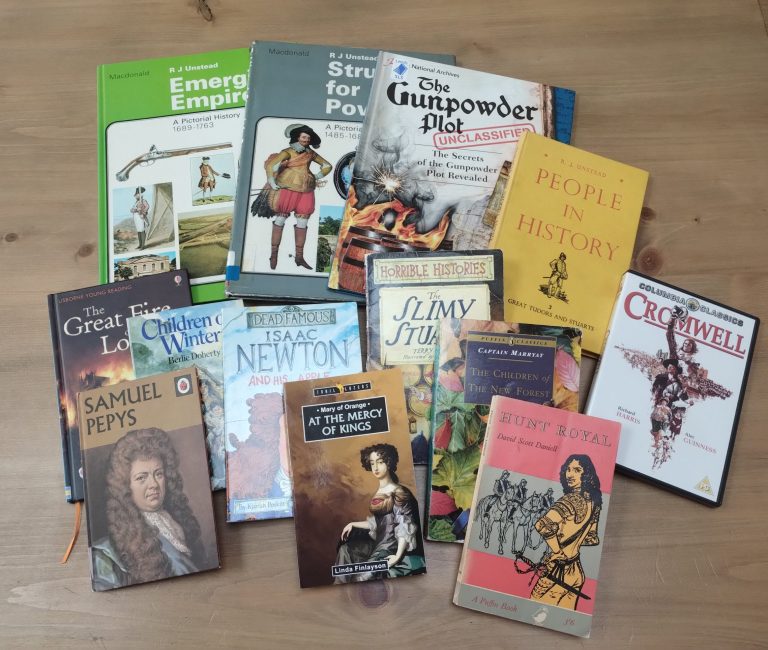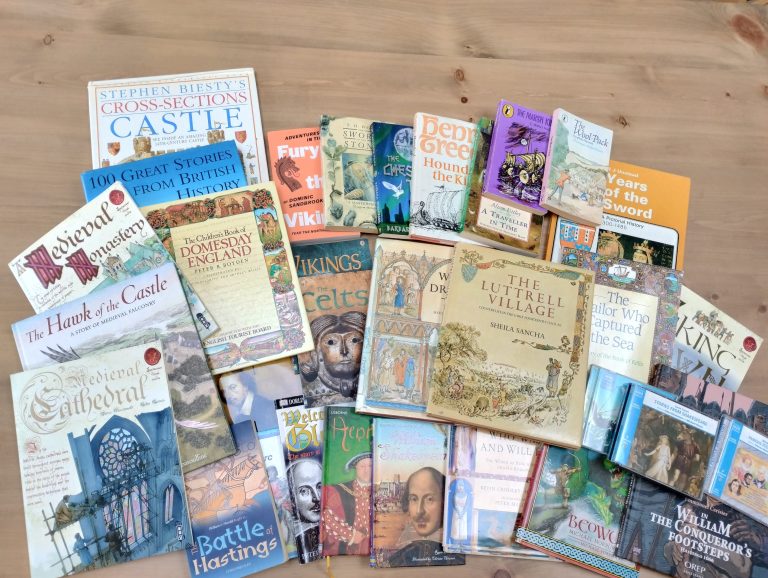Scientist biographies for children
By far the most useful resource that I have found is the short audiobook biographies produced by Naxos Junior Classics. Each biography is roughly 10-15 minutes long, and they are very well done. Generally the audiobooks run in chronological order, so one gets a real sense of scientific discoveries building on each other. The science is explained clearly, and even within these short biographies, one gets a sense of the character of each scientist.
This post contains affiliate links. As an Amazon Associate, I earn from qualifying purchases.
Great Scientists and their Discoveries (Naxos Junior Classics)
David Angus
This volume covers Galileo Galilei, Robert Boyle, Isaac Newton, Michael Faraday, Charles Darwin, Gregor Mendel, Albert Einstein, James Watson and Francis Crick. I particularly enjoyed the biographies of Robert Boyle and Michael Faraday, about whom I knew little.

More Great Scientists and their Discoveries (Naxos Junior Classics)
David Angus
This volume covers Copernicus, Pascal, Halley, Linnaeus, Volta, Davy, Humbolt, Babbage and Oppenheimer. I think I enjoyed this audiobook even more than the first, because I learned so much. I particularly enjoyed the story of Blaise Pascal, whose father refused to allow him to learn mathematics until he was 15! When he discovered that his son was teaching himself mathematics anyway in secret, he relented and gave him a copy of Euclid.

Here are some more children’s science biographies to consider, arranged in rough chronological order.
Early Scientists
Archimedes and the Door of Science
Jeanne Bendick
A lovely book, well worth reading. Archimedes discovered so many fundamental principles of mathematics and science on which we rely. There are lots of simple diagrams and pictures to aid understanding, as well as interesting stories from Archimedes’ life.
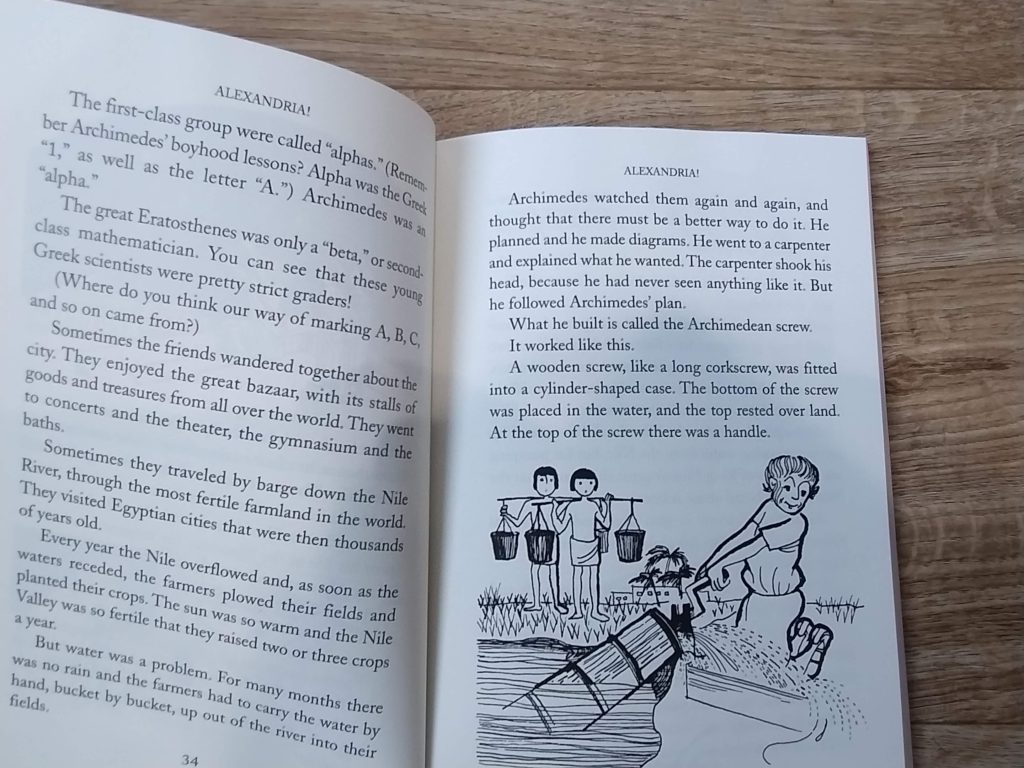
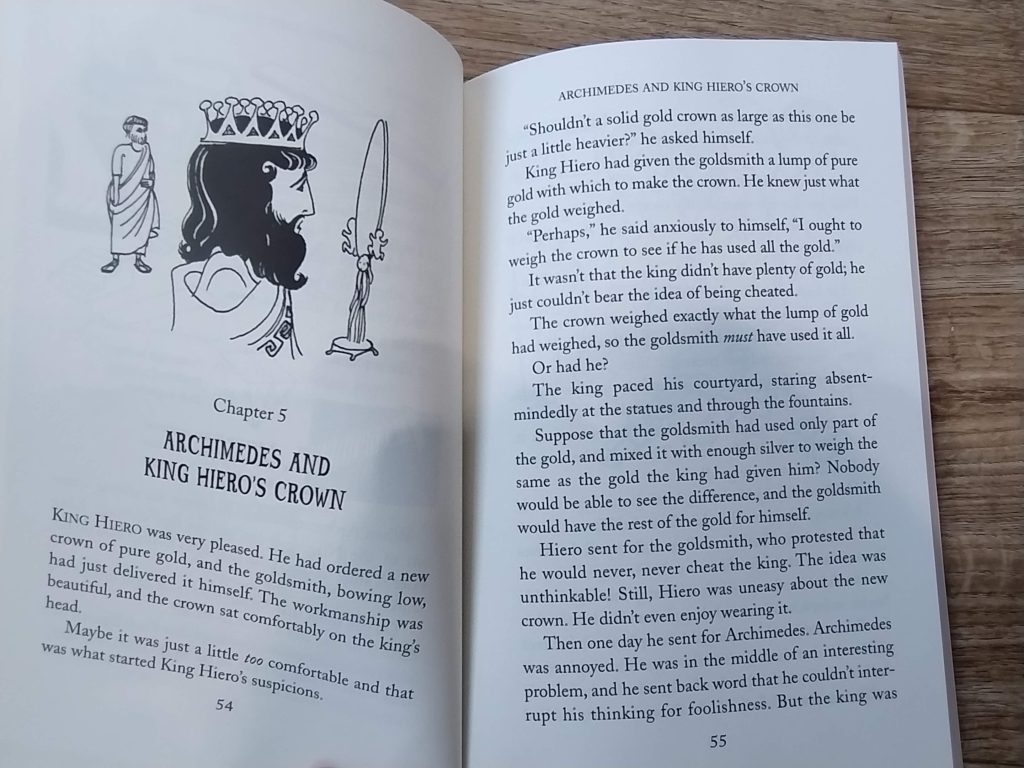


Galen and the Gateway to Medicine
Jeanne Bendick
An enjoyable and accessible read, with many black-and-white illustrations. This book gives lots of context for the ancient Roman world in which Galen operated, as well as sharing the story of Galen’s life, from his early studies in Pergamum, to his work with gladiators and Roman Emperors.



Leonardo Da Vinci: Amazing Inventions You Can Build Yourself
Maxine Anderson
I really like this book – I think the activities and text are well-pitched at a similar level, and there is a good mix of biographic text, diagrams and suggested activities. Some of the activities are straightforward and easy to implement ‘on the fly’, but others require planning, and some of them could do with a more detailed explanation. Looking at some of the later projects, such as the catapult and elastic band propelled tank, I have concerns that the whole set-up might snap under tension. We have built these sorts of contraptions, but using Lego Technic which is more forgiving than wood and card if you need to adjust or rebuild it.




The Scientific Revolution
Galileo for Kids: His Life and Ideas
Richard Panchyk
My children have enjoyed several of the books in the For Kids series, including this one. I find it hard to know how to describe them: the main text of the biography is really quite detailed and lengthy, but it is interpersed with lots of hands-on activities and diagrams. Some of these are great science activities, such as pendulums and experiments on density, but others are ideas such as making a renaissance-style meal. The density of the text feels like it is pitched older than the activities. I have tended to use these books more as a resource for me, to read aloud passages and then do the activities together.





Dead Famous: Isaac Newton and his Apple
Kjartan Poskitt
Written by the author of Murderous Maths, this is a humorous account of the life of Isaac Newton in the style of Horrible Histories, with lots of comic-book style illustrations. My child who loves Murderous Maths absolutely adored this book and re-read it many times. If you are looking for a more serious biography, the Naxos audiobook is a better choice, but this is a fun one for a child to read to themselves.




The Enlightenment
Karl, Get Out of the Garden!
Anita Sanchez
I absolutely love this picture-book biography of Karl Linnaeus. The illustrations are beautiful, and the story captivating for younger and older children alike. I particularly appreciated the inclusion of some original quotes from Linnaeus. The book has plenty for younger listeners to enjoy, whilst also providing a memorable and clear explanation of the development of classification. I wish there were more scientist biographies like this one. Expensive, but worth it!




How Ben Franklin Stole the Lightning
Rosalyn Schanzer
A biography of Franklin for younger children, with lots of sweet illustrations. The first two thirds of the book give an overview of Franklin’s life and some of his inventions. Roughly the last third is devoted to his work on electricity, and the development of the lightning rod. I was slightly disappointed in this book as I was hoping for more scientific detail. This book does not provide that, but it is an enjoyable read for younger children.
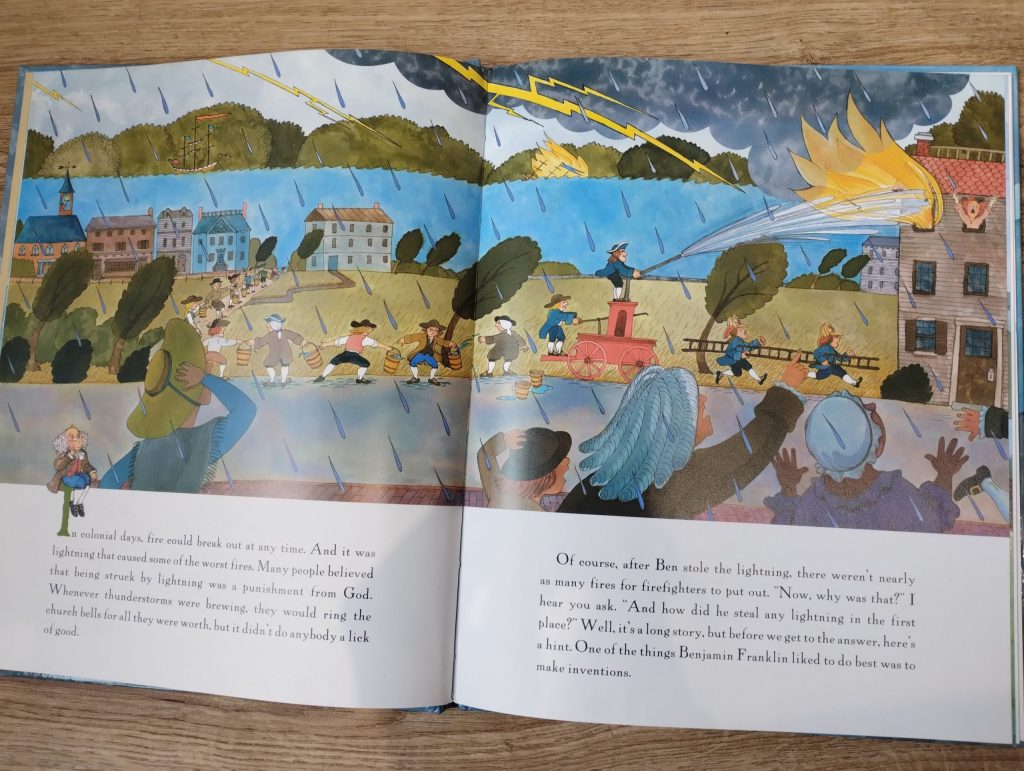



Scientists in the 19th and 20th Centuries
Gregor Mendel: The Friar who Grew Peas
Cheryl Bardoe
A favourite picture-book biography, beautifully illustrated. This is one of those books that manages to give an interesting account of Mendel’s life, whilst also providing some basic teaching on genetics. The diagrams of pea-pods are excellent, although the mathematical understanding required to grasp the meaning is probably somewhat above the reading-level required for the rest of the book.



Marconi’s Battle for Radio
Beverley Birch and Robin Bell Corfield
This is a picture book biography, intended, I think, for younger children. The text is pretty accessible, but the book is light on the science behind Marconi’s discoveries, it is more of an overview of his struggle to develop his ideas and receive recognition. When you consider that he had no formal education to speak of, his discoveries are all the more astonishing. This is a good choice for a younger child who is interested in radio. For older children, I would suggest listening to the excellent Naxos audiobook biography first.




You may also be interested in children’s books about engineering, or children’s books about the history of medicine.


